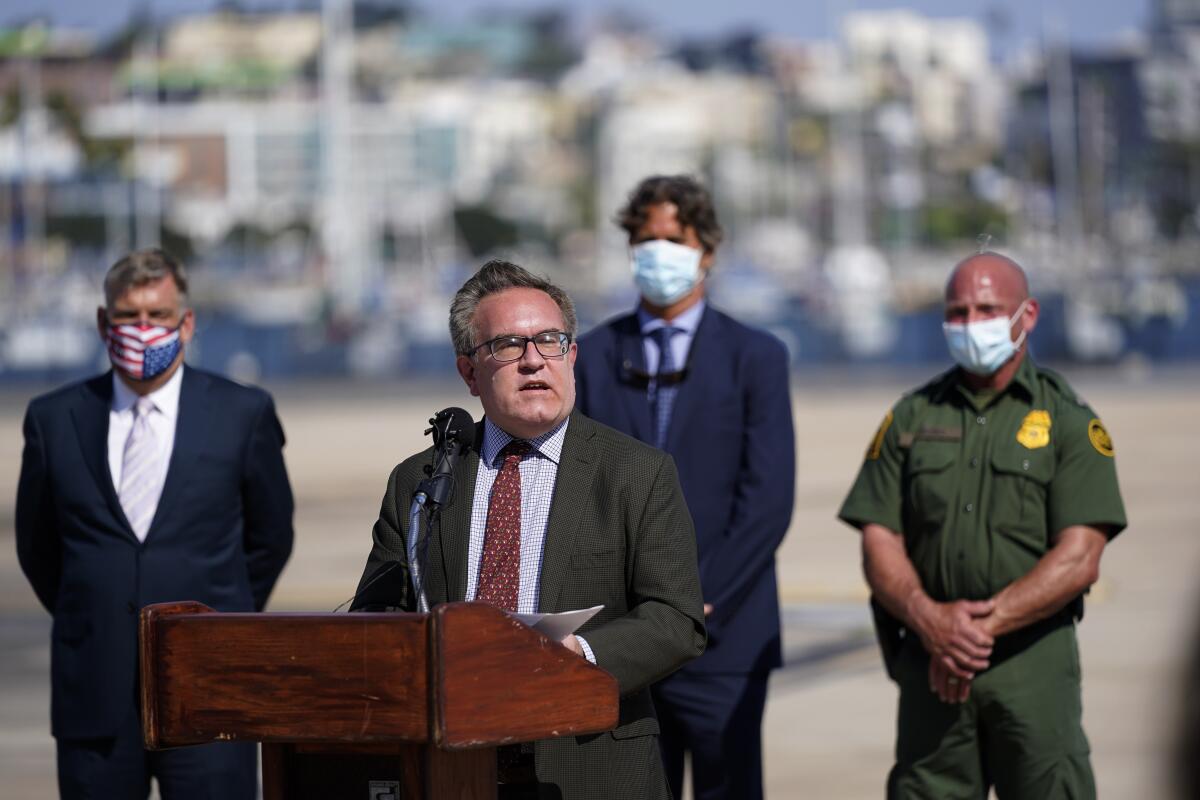EPA chief announces projects to address border sewage spills

- Share via
SAN DIEGO — Federal investments in Tijuana River Valley infrastructure to address problems with sewage runoff could mean an end to beach closures that have plagued the South Bay in recent years, officials announced Wednesday in San Diego.
Environmental Protection Agency Administrator Andrew Wheeler, alongside local political leaders including San Diego Mayor Kevin Faulconer, announced several projects funded in part by the agency at a news conference at the U.S. Coast Guard Air Station in San Diego.
Among the projects are two short-term, $25-million projects Wheeler said will immediately address border pollution.
One grant will help divert 10 million gallons of wastewater per day for treatment at the South Bay International Wastewater Treatment Plant. This alone, Wheeler said, will stop most water pollution closures of South Bay beaches.
The other project Wheeler announced is a new trash and sediment capture facility at Smuggler’s Gulch, a cross-border canyon about two miles inland.
Wheeler also gave updates on some other border infrastructure projects.
A new intake collector was completed last week and is preventing 4.5 million gallons of sewage per day from entering the Tijuana River, he said. The EPA contributed $3.9 million to that $10.6-million project, he said.
The agency also co-funded improvements to the Tijuana River pump station and to the Oriente collector project, a pipeline that collapsed in 2017 and caused a significant spill into San Diego, closing beaches in Imperial Beach and Coronado. The EPA is spending almost $1 million to help replace the collector, which includes replacing almost one mile of pipe.
San Diego County Supervisor Greg Cox, who also attended the news conference, said the projects will begin to “turn the tide” in the fight against border sewage pollution.
“The time for talk is over — the time for action is here,” Cox said. “I am happy to see that we are now moving forward with actual solutions and projects to address this problem.”
Under the United States-Mexico-Canada Agreement — a renegotiation of the North American Free Trade Agreement signed into law in January — President Trump agreed to spend $300 million to address cross-border sewage flows. How that money will be spent is still being determined, Wheeler said.









